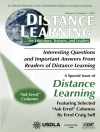This book presents the elaboration model for the multivariate analysis of observational quantitative data. This model entails the systematic introduction of ’third variables’ to the analysis of a focal relationship between one independent and one dependent variable to ascertain whether an inference of causality is justified. Two complementary strategies are used: an exclusionary strategy that rules out alternative explanations such as spuriousness and redundancy with competing theories, and an inclusive strategy that connects the focal relationship to a network of other relationships, including the hypothesized causal mechanisms linking the focal independent variable to the focal dependent variable. The primary emphasis is on the translation of theory into a logical analytic strategy and the interpretation of results. The elaboration model is applied with case studies drawn from newly published research that serve as prototypes for aligning theory and the data analytic plan used to test it; these studies are drawn from a wide range of substantive topics in the social sciences, such as emotion management in the workplace, subjective age identification during the transition to adulthood, and the relationship between religious and paranormal beliefs. The second application of the elaboration model is in the form of original data analysis presented in two Analysis Journals that are integrated throughout the text and implement the full elaboration model. Using real data, not contrived examples, the text provides a step-by-step guide through the process of integrating theory with data analysis in order to arrive at meaningful answers to research questions.
Inhoudsopgave
Preface
Acknowledgments
About the Author
Part I. Conceptual Foundations of the Elaboration Model
Chapter 1. Introduction to Theory-Based Data Analysis
Chapter 2. The Logic of Theory-Based Data Analysis
Chapter 3. Relationships as Associations
Chapter 4. The Focal Relationship: Causal Inference
Part II. Regression with Simple Random Samples and Complex Samples
Chapter 5. The Elaboration Model With Multiple Linear Regression
Chapter 6. Regression With Survey Data From Complex Samples
Part III. The Elaboration Model With Multiple Linear Regression
Chapter 7. Ruling Out Alternative Explanations: Spuriousness and Control Variables
Chapter 8. Ruling Out Alternative Theoretical Explanations: Rival Independent Variables
Chapter 9. Elaborating the Focal Relationship: Mediation and Intervening Variables
Chapter 10. Elaborating the Focal Relationship: Antecedent and Consequent Variables
Chapter 11. Specifying Conditions of Influence: Moderating Variables
Part IV. The Elaboration Model With Logistic Regression
Chapter 12. The Elaboration Model With Logistic Regression
Part V. Conclusion
Chapter 13. Synthesis and Comments
Glossary
References
Abbreviations
Index
Over de auteur
Carol S. Aneshensel is a sociologist (Ph.D., Cornell University) and Professor at the University of California, Los Angeles. She specializes in the fields of the sociology of mental health and medical sociology, with an emphasis on the social origins of stress and its impact on depression. She has been Principal Investigator for numerous studies funded by the National Institute on Aging and the National Institute of Mental Health. She has published more than 75 peer-review journal articles and several books, including her work as lead editor of the Handbook of the Sociology of Mental Health, Second Edition (Springer, 2012). She has received awards for distinguished contributions from the Sociology of Mental Health and Medical Sociology sections of the American Sociological Association (ASA). Theory-Based Data Analysis for the Social Sciences received Honorable Mention for Best Publication in 2003 from the Sociology of Mental Health section, ASA.












